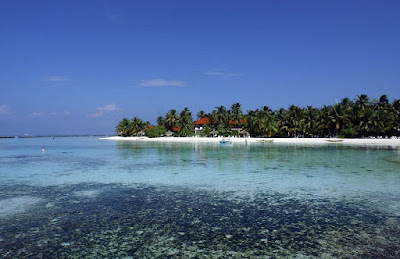Yahoo – AFP,
October 30, 2016
 |
| EU-Commissioner for Energy German Guenther Oettinger was secretly filmed at a Hamburg event earlier this month while mocking a delegation of Chinese ministers (AFP Photo/Odd Andersen) |
Frankfurt
(AFP) - Germany's European Commissioner Guenther Oettinger on Sunday defended
his use of the term "slitty eyes" for Chinese people which triggered
outrage after they were revealed in a leaked recording of a speech to business
leaders.
Oettinger
-- the commissioner for digital economy who was last week named to the more
powerful post of budget commissioner -- also made disparaging remarks about
women and gay marriage.
In the
comments, secretly filmed at a Hamburg event earlier this month, he mocked a
delegation of Chinese ministers, "their hair combed from left to right
with shoe polish".
Anonymous
YouTube user "Sebas Travelling", who uploaded the clip on Friday,
said Oettinger had used the words "slitty eyes" and
"chiselers" to refer to Chinese people.
"That
was a somewhat sloppy expression that was not meant in any way disrespectfully
towards China," Oettinger told Die Welt newspaper on Saturday.
The
comments were made during a speech focusing on EU relations with China, the
world's second largest economy.
"Nine
men, one party. No democracy, no female quota, and no women -- which follows
logically," he said, referring to the delegation which had recently
visited the Commission.
Oettinger
insisted to Die Welt that his comments were taken out of context and that he
had "received a lot of positive reaction" to the speech.
In his
comments to the Hamburg forum, he also took aim at the political agendas of
domestic German politicians, including more generous pensions and child
benefits, a controversial road toll for foreign vehicles, and "soon to
come, compulsory gay marriage".
"I
have nothing against same-sex marriage," he said on SWR public radio on
Sunday.
"But
while we're all talking and arguing about that, there is no time for other,
critical questions, which would keep Germany and Europe ahead in a dynamic
world."
In the
secretly-recorded speech, he said Germany and other EU nations were allowing
Chinese firms to buy up European companies and their valuable know-how and
intellectual property, while China did not allow Europeans to invest there as
freely.
"The
same rules should go for China and for Europe. We should open our markets to
one another to the same extent," he told Die Welt.
The
comments come at an embarrassing time as they emerged just after European
Commission chief Jean-Claude Juncker announced Friday he had tapped Oettinger
to take over the budget portfolio from Bulgaria's Kristalina Georgieva.
Juncker and
German Chancellor Angela Merkel should "impose an adequate punishment in
the face of this behaviour unworthy of a member of the European
Commission", French activist group SOS Racisme said in a statement Sunday.
"Someone
who openly spreads racist and homophobic opinions has disqualified themselves
for top political positions," Katarina Barley, secretary-general of
Germany's centre-left Social Democratic Party, told Spiegel Online on Saturday.
Germany's Oettinger apologizes for Chinese, gay marriage slurs - New
China umimpressed with German politician Oettinger's racial slur
Related Articles:
Germany's Oettinger apologizes for Chinese, gay marriage slurs - New
China umimpressed with German politician Oettinger's racial slur





























